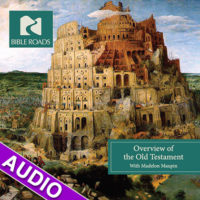 A favorite definition of leadership (after I worked in the field many years) is ‘one who follows in advance of others, the leadership of God.’ While Moses, Elijah, Paul and others embody this definition, lesser-known figures like Ezra merit a closer look.
A favorite definition of leadership (after I worked in the field many years) is ‘one who follows in advance of others, the leadership of God.’ While Moses, Elijah, Paul and others embody this definition, lesser-known figures like Ezra merit a closer look.
Described as ‘a priest and teacher of the law of the God of heaven” (Ezra 7:12), Ezra was sent by a Persian emperor (probably Artaxerxes I) to Jerusalem for both administrative and religious purposes around 458 BCE.
Like any leader, Ezra had problems to solve and does this not through exercising strong personality traits but through prayer – silent yet visible. Ezra 9 recounts how the subject of mixed marriages is tearing the newly returned Jewish community apart. The husbands intermarrying with Canaanites, Moabites and other foreigners, found that their spouses introduced idolatrous practices that directly threatened the purity of the religion the Jews longed to reestablish.
Learning of the Jews’ disobedience in this domestic arena, Ezra dramatically tears his clothes and beard, and then becomes absolutely silent until evening. Finally before that night’s temple sacrifice, Ezra stands in front of the crowd and prays with devotion and humility (Ezra 9:6 – 15).
Recounting Israel’s past sins and reason for the Babylonian enslavement, Ezra’s lament turns to the present and a moving declaration of God’s steadfast love: “For we were slaves, but in his unfailing love our God did not abandon us in our slavery….He revived us so we could rebuild the Temple of our God and repair its ruins….O Lord, God of Israel, you are just.”
Ezra must have glimpsed those two facets of God’s nature while in Babylonian captivity. The Lord God’s ‘unfailing love’ was evident in the way God had used King Cyrus as His agent , as the Isaiah prophet foretold (see Isa. 45:1) in allowing the Jews to go home. The ‘just’ aspect of God’s nature would have been seen and heard in the captivity stories of faithful Jews like Daniel and his friends. Expressing both fidelity to God and courage throughout their years of captivity, the Lord God’s justice was seen in their freedom from the devouring fiery furnaces and lions’ dens.
On this critical night of Ezra’s priestly leadership, he demonstrates how vital it is to turn to God in prayer. His impassioned example had a profound effect on the surrounding Jews: “We are behind you, so be strong and take action” (Ezra 10:4).
Ezra again prays, this time all night, fasting as well. One can’t help but think of Jesus’ later admonition that ‘this kind does not go out except by prayer and fasting” (NKVJ, Matt. 17:21). Suddenly a course of action appears. Proclaiming that all the people come together in a short three days, Ezra declares that all foreign wives and their children are sent back to their homes. While it sounds harsh, Ezra and others were all too aware that many of their fellow Jews had stayed behind in Babylon to dangerously blend into a lukewarm Judaism that would destroy the faith eventually. In a short time, the people followed Ezra’s directive and Israel was once again obedient to the Lord God.
Prayer, listening, obeying, taking action. It doesn’t matter the circumstances or the centuries. The Bible’s leadership lessons are timeless for us all.
* Ezra’s dates follow the period after Babylonian captivity when King Cyrus of Persia allowed the Jews to return, around 539 BCE. The book of Ezra contains the original Aramaic decree –Persia’s official language– authorizing some 50,000 Jews to go home (see Ezra 7:12-26).
(Engraving: Aaron in the tabernacle, by Gerard Jollain, published 1670 in “La Saincte Bible”.)




Thank you for opening Ezra to me. I sometimes take the minor prophets “lightly”, moving quickly through since the theme is often disturbing. But as I read through your article, I was compelled to go to Ezra and read it. I chose the Common English Bible this time and found it uplifting. Ezra is reminding me of the strength I find in God when resisting the temptations of this world. Temptations not unlike those of the Jews placed back in their beloved Jerusalem. I too can pray and fast, or come out from the pressures of the temptation to judge,… Read more »
Madelon,
I can understand Ezra’s stand, but I don’t agree with it. What if those wives were like Ruth and dedicated themselves to God. If the wives were refusing the shelter and protection of having one God that would be different. Then I think the husbands should have left with their families.
I understand the importance for us to take a stand now, to be ever watchful that we aren’t bowing down to other gods. I just don’t think God would have wanted families to be torn apart.
Thank you for giving us more of back ground on Ezra.
Madelon ~
Are there any accounts that tell if Daniel or the three Hebrew boys stayed in Babylon or returned to Jerusalem?